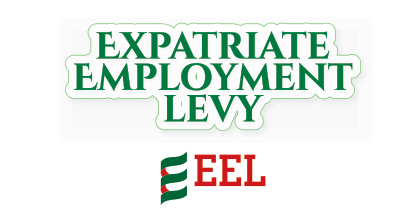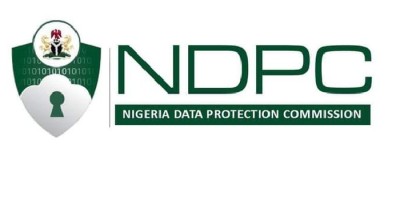- Home
- Grey Matter
- Regulatory Alert: Federal Ministry Of Interior - Introduction Of Expatriate Employment Levy And Other Matters
Regulatory Alert: Federal Ministry Of Interior - Introduction Of Expatriate Employment Levy And Other Matters
Posted on Wed 6 Mar 2024
- Download Resource
INTRODUCTION
The Immigration Act, 2015 (the “Act”) is the principal legislation governing the movement of individuals and businesses within Nigeria's borders. At the helm of overseeing this crucial aspect is the Federal Ministry of Interior (“FMI” or “Ministry”), the supervisory body tasked with managing entries and exits. Within the Ministry’s jurisdiction, the Citizenship and Business Department (“CBD”) assumes a critical role in overseeing business entry processes and expatriate quota positions, facilitating seamless movement for both individuals and businesses throughout the country.
The Minister of Interior (the “Minister”), by virtue of section 112 of the Immigration Act, is empowered to make regulations deemed necessary or expedient for the effective implementation of the provisions of the Act. As a result of this mandate, the Immigration Regulations 2017 (the “Regulation”) was issued. It is essential to note that Section 18 of the Interpretation Act[1]defines "regulation" as encompassing "rules" and "byelaws." By virtue of the ejusdem generis principle, this means that regulations can encompass various forms of directives, guidelines, and handbooks, in addition to formal rules established by legislation.
In line with the foregoing, the Ministry has issued several handbooks that provide guidance on the application processes administered by the Ministry. These handbooks serve as practical tools to assist stakeholders in navigating the complexities of immigration procedures.

This newsletter focuses on recent developments at the Federal Ministry of Interior, shedding light on two recently released handbooks pertaining to:
(i) Expatriate Employment Levy (“EEL”); and
(ii) Citizenship Administration.
We will also provide a summary of the functions of the FMI in relation to doing business in Nigeria, highlighting its pivotal role in issuing business permits and managing expatriate quotas, especially in relation to the newly introduced EEL. These functions stand as critical pillars in facilitating business activities and overseeing the foreign workforce in Nigeria.
A. FUNCTIONS & ROLES OF THE FMI
Business Permit
Every company with foreign shareholders intending to engage in business activities in Nigeria, whether as wholly owned entities or in joint ventures, must legally obtain government approval before commencing operations. According to Section 36 of the Act and Section 12 of the Regulation, the Minister is tasked with the responsibility of approving business permit applications. This approval is granted after a comprehensive review process conducted by different cadre of Ministry officials within the CBD.
Grant of Expatriate Quota Positions
These approvals are granted by the Ministry to enable companies to engage the services of expatriate with skills, competence and expertise that are scarce or unavailable in Nigeria. By virtue of the Revised Handbook on Expatriate Quota Administration (the “Revised Handbook”), the total lifespan of Expatriate Quota (“EQ”) grants for companies is seven (7) years, comprising three (3) years in the first instance and renewable biennially for two (2) consecutive terms of two (2) years each. The only exception is for companies in the oil and gas sector, which are issued approval for an initial period of two (2) years and renewable once, within a life span of four (4) years only.
Companies utilizing EQ are obligated to submit monthly EQ returns to both the Nigeria Immigration Service (“NIS”) and the Ministry. In addition, it is the responsibility of these companies to notify the NIS when expatriates are relieved of their duties and no longer occupy the positions designated by the EQ.
Combined Expatriate Residence Permit and Alien Card
Upon the grant of an EQ, an expatriate entering Nigeria under this quota is required to apply for and obtain the Combined Expatriate Residence Permit and Alien Card (“CERPAC”) from the NIS. The CERPAC allows the expatriate to legally reside and work in Nigeria and is valid for two (2) years at a time.
B. EXPATRIATE EMPLOYMENT LEVY
In addition to the foregoing regime, more recently on February 27, 2024, President Bola Ahmed Tinubu along with the Minister of the FMI, Mr. Bunmi Tunji-Ojo and several high-ranking government officials, launched the Expatriate Employment Levy (“EEL”) Handbook 2024 (the “EEL Handbook”).
According to the FMI, the EEL is designed to foster the exchange of skills and knowledge from expatriates to local employees, aiming to balance economic growth with social welfare. The main thrust of the EEL is the striking of a balance between expatriates’ contribution to economic development and protection of the local labour market, such that the gains accruing to the economy from foreign transfer of expertise and capabilities by expatriate workers do not prejudice the employment prospects of local workers. It is also expected to enhance the current administration's commitment to job creation and the promotion of overall economic prosperity.

It is worth acknowledging that EEL is not unique to Nigeria and has equivalents in other jurisdictions as well. For example, in the United Kingdom, there exists a similar levy known as the Immigration Skills Charge, which is payable annually by employers who sponsor skilled or senior specialist workers to work in the United Kingdom. Similarly, in Singapore and Malaysia, the equivalent levy is referred to as the Foreign Worker Levy, which is payable monthly in Singapore and annually in Malaysia by employers applying for permits on behalf of expatriates. These examples underscore the global nature of such levies and their prevalence in various countries as a means of regulating the employment of expatriates and manage the influx of foreign workers.
The EEL Handbook elucidates various aspects of implementation of the EEL, including its scope of operation, the role of the NIS, and the reporting and compliance duties of both expatriates and employees. It also outlines the offenses and corresponding sanctions associated with the EEL.
We have highlighted below, key developments in the EEL Handbook for your general information:
1. SCOPE OF OPERATION
a) Applicability: As outlined in the EEL Handbook, the EEL applies to private sector companies or organizations that utilize the services of expatriates in Nigeria. Notably, staff of diplomatic missions and government officials in Nigeria are exempt from the EEL requirement. However, it is important to note that if a dependent of any exempted person is gainfully engaged by a private company in Nigeria, the EEL will apply to such dependent, underscoring the comprehensive scope of this levy. Similarly, holders of residence permits and individuals occupying EQ positions, even if they are on cross-border assignments or secondments outside Nigeria, are subject to the EEL as per the provisions of the Handbook.
With respect to the expatriates who have obtained Temporary Work Permits (“TWP”), it is useful to elaborate on the nature of a TWP. There are two (2) categories of TWP visas – F8A and R11. The F8A visa is a single-entry visa accompanied by a TWP, issued to experts invited by companies to provide specialized skill services for a period not exceeding ninety (90) days. Conversely, the R11 visa is a multiple-entry visa, categorized under the Temporary Residence Permit (TRP) and as a subcategory TWP. It is issued to specialized skilled workers invited by companies in Nigeria for a period not exceeding six (6) months.

In scenarios where expatriates enter Nigeria for seasonal or short-term employment under the aforementioned TWPs, employing companies are not obligated to pay the EEL unless the expatriate spends an aggregate of 183 days or more in Nigeria within a fiscal year. It is crucial to note that if an expatriate is employed by multiple companies within the year, the EEL Handbook assigns the responsibility for paying the EEL to the last employer, who bears immigration responsibility for the expatriate.
b) Timeline: the EEL Handbook sets a 183-day threshold for the applicability of the EEL, indicating that the levy becomes payable after this period. However, a contradiction appears in section 3.4 which states that “expatriate workers employed for duration not less than 183 days within a year, shall be liable to pay the EEL on an annual basis. The duration shall be calculable on aggregate and shall not be construed to mean 183 days or more spread over a period not exceeding one (1) fiscal year”.
The EEL Handbook initially indicates that the 183-day threshold is calculated cumulatively, accounting for the total period an expatriate works in Nigeria within a year. However, it subsequently clarifies (in the same sentence) that the calculation of these 183 days should be continuous and not intermittent throughout the given year. This clarification introduces ambiguity in interpreting the requirement which may be useful for the FMI to resolve in clear terms.
Notwithstanding the above, the EEL Handbook explicitly outlines the timeline calculation for workers under the TWP as the "aggregate number of days spent in Nigeria of 183 days or more spread over a period of one (1) fiscal year." This precise language clarifies that for TWP holders, the 183-day requirement is indeed calculated as an aggregate spread over the fiscal year, providing a clear framework for their EEL liability.

2. FEES & PAYMENT OF THE EEL
The financial responsibility for the EEL falls squarely on employers, aligning with the broader immigration responsibilities they assume when hiring expatriates. The EEL Handbook specifies that employers are required to pay:
i. Fifteen Thousand Dollars (USD15,000) where the expatriate holds a director position; and
ii.Ten Thousand Dollars (USD10,000) for non-director level positions.
It is noteworthy that the EEL Online Portal User Manual, which is accessible on the electronic portal deployed by the FMI for stakeholders’ use in complying with the EEL requirement, elaborates on the foregoing by stating that although the EEL payable are denominated in United States Dollars, the fees can be paid in Naira based on the applicable daily exchange rate. In this context, the prevailing Central Bank of Nigeria official exchange rate will apply on the date of payment.
The NIS may have adopted a payment approach similar to that currently assumed for payments of CERPAC fees, which are also officially denominated in United States Dollars but in practice, payable by stakeholders in Naira. It may be necessary for the FMI to replicate in the EEL Handbook, the referenced provision in the EEL Online Portal User Manual so as to provide clarity with regards to applicable currency to be utilised for payment.
3. EMPLOYERS’ AND EXPATRIATES’ RESPONSIBILITIES
The EEL Handbook emphasizes the importance for employers to maintain accurate and up-to-date records of expatriates. This includes the timely notification of changes and proper reporting, which entails submitting monthly expatriate returns to both the Ministry and the NIS. Employers are also required to notify the Ministry about any redesignation of employment and to inform the NIS about changes in an expatriate's employment status or if the expatriate is relieved of their employment.
Additionally, the relevant provisions of the EEL Handbook underscore the responsibility of expatriates to provide accurate information to government authorities and their employers. This ensures transparency and compliance with regulatory requirements, ultimately contributing to a smoother and more efficient expatriate management process.
4. OFFENCES AND SANCTIONS
The penalty regime in the EEL Handbook derives authority from the combined provisions of Section 56(3) and 56(5) of the Act, which prescribe fines and terms of imprisonment for offenses relating to making false statements or refusing to furnish information to NIS officials, including imposition of a fine of One Million Naira (NGN1,000,000) or imprisonment for five years or both. Specifically, the offences and the prescribed sanctions in the EEL Handbook include at a glance:
- Failure of a corporate entity to file EEL within thirty (30) days attracts a fine of Three Million Naira (N3,000,000)
- Failure of an employer to register new employees within thirty (30) days attracts a fine of Three Million Naira (N3,000,000)
- Submission of forged information or falsification of information in the EEL attracts a fine of Three Million Naira (N3,000,000)
- Failure of a corporate entity to renew EEL before the expiry date (within 30 days) attracts a fine of Three Million Naira (N3,000,000).
In addition to the foregoing, the EEL Handbook invokes the provisions of Section 56(2) of the Regulation making a body corporate, that fails to renew its Expatriate Quota (EQ) within the stipulated time or fails to submit monthly EQ returns, liable to a fine of Three Million Naira (N3,000,000).
However, we note that the stated sanctions in the EEL Handbook appear inconsistent with those prescribed in the Act. While the Act contemplates a judicial process upon which a person convicted of a crime will be liable to a fine or term of imprisonment, the EEL Handbook seemingly leans towards administrative fines. For instance, paragraph 3 of section 6.3 of the EEL Handbook expressly and summarily prescribes a fine of Three Million Naira (N3,000,000) for the falsification and submission of forged documents, whereas Section 56(5) of the Act prescribes a fine of only One Million Naira (N1,000,000) or imprisonment for a term of five years, or both for false returns or statements. In the circumstance, there appears to be two (2) options for enforcement. The FMI may have to consider a review of the highlighted provisions of the EEL Handbook to bring them in line with the Act. This is important because the Act is the primary and substantive legislation for the regulation of such matters.
5. IMPLEMENTATION
The provisions of the EEL Handbook are set to take effect on March 15, 2024, with a compliance deadline of April 15, 2024. The NIS has the primary responsibility for enforcing compliance with the requirements of the EEL, including determining which expatriate(s) falls within the EEL purview and enforcing the levy in line with the provisions of the Immigration Act and the extant Nigeria Visa Policy.
.jpg)
Entities are required to report expatriate employment details on an online platform that would be provided by the government. Employers of expatriates are required to maintain comprehensive records pertaining to their expatriate employees. Employers also have the responsibility of ensuring that these records are submitted in a timeous manner. Where there are any changes in job roles, salary, employment duration and other significant factors that may impact calculation of the EEL payable, employers must promptly notify the relevant government agency of such changes. Employers are also required to provide training and awareness programmes for their Human Resource and Payroll teams, to ensure that they are well informed about the EEL reporting requirements and compliance measures.
6. POTENTIAL IMPLICATIONS
While we recognize the importance of the EEL to local content protection, the potential implications on the ease of doing business should also be considered. Generally, the EEL will increase employment costs in highly technical and skills-based industries, especially for entities that require some level of technical know-how in their operations that may not be available in-country or available in adequate supply, and so rely on expatriate workers.
In the overall, the EEL constitutes another layer of fiscal burden on businesses and may negatively impact foreign investment inflow. At a time when the Federal Government, through the Presidential Fiscal Policy and Tax Reforms Committee, is looking to incentivize investors by streamlining the fiscal regime and reducing tax burdens on businesses, the FMI and NIS may need to consider a review of the EEL applicable rates and sanctions.
However, in the meantime, companies and organizations impacted by the new EEL regime are strongly encouraged to take proactive steps to ensure they meet the aforementioned requirements. Adopting such a proactive approach is crucial to mitigating the risk of incurring penalties for non-compliance.
C. HANDBOOK ON CITIZENSHIP ADMINISTRATION
It is also noteworthy that earlier this year, the Ministry, under the leadership of the Honourable Minister of Interior, Honourable Olubunmi Tunji-Ojo, launched a Handbook on Citizenship Administration (the “Handbook”).
The Handbook outlines the operational scope of the Department of Citizenship at the FMI, covering the following areas: (i) granting of Nigerian citizenship; (ii) establishment and maintenance of the Federal Marriage Registries; (iii) licensing (and renewal) of public places of worship for marriage ceremonies; and (iv) issuance of secured federal marriage certificates in all Federal Marriage Registries. Additionally, the Handbook details the general rules, documentation requirements and associated costs for the operational areas mentioned above.
The focus below is on the provisions of the “Grant of Nigerian Citizenship” chapter in the Handbook:
GRANT OF NIGERIAN CITIZENSHIP
While the Constitution of the Federal Republic of Nigeria 1999, as amended (the “Constitution”), delineates three (3) avenues for obtaining Nigerian Citizenship—by Birth, Naturalization, and Registration—the Handbook introduces three (3) additional pathways to citizenship in Nigeria, expanding the options available to include:

a. Citizenship by Investment
The Handbook stipulates provisions for citizenship by investment, offering foreign nationals the opportunity to obtain permanent residency by investing in Nigeria. Notably, the minimum investment stands at One Million Dollars ($1,000,000).
To qualify for this program, applicants must meet specific criteria, including; (i) not possessing dual citizenship or being a citizen of a country with a non-dual citizenship policy; (ii) entering into a Memorandum of Understanding with Nigeria; (iii) providing a police report from the country or countries which they were resident in the preceding five (5) years, showing no criminal records; and (iv) demonstrating economic self-sufficiency.
b. Citizenship by Confirmation
In addition to the provisions for citizenship by naturalization outlined in Section 27 of the Constitution, the Handbook provides for citizenship by confirmation granted to children of naturalized Nigerians below the age of eighteen (18) years.
This enables a naturalized Nigerian parent to apply for Nigerian citizenship on behalf of their minor children through the prescribed application process. Specific requirements include: (i) proof of the parent's means of livelihood; (ii) A notarized letter from the child's parent; and (iii) a certificate of local government residency in Nigeria.
c. Special Immigration Status
With regards to matrimony between a foreigner and a Nigerian, the path to citizenship diverges. Where a foreign woman marries a Nigerian man, she can attain Nigerian citizenship through citizenship by registration. Conversely, when the union involves a foreign man marrying a Nigerian woman, the man can only be conferred with a Special Immigration Status (“SIS”) without the opportunity to acquire citizenship through registration.
To secure the SIS, a foreign man must have been married to his Nigerian wife and lived in Nigeria continuously for a period of five (5) years. However, the Handbook elaborates that before receiving the SIS, the foreign husband may apply for a Temporary Residence Permit (TRP) as an interim measure. The TRP is originally granted for a term of three (3) years and renewable for another two (2) years.
Banwo & Ighodalo possesses the requisite expertise and competence to provide legal advisory services on immigration matters including the acquisition of essential permits, visas, certificates, citizenship, and licenses as mandated by Nigerian law.
This newsletter is only intended to provide general information on the subject matter and does not by itself create a client/attorney relationship between readers and our Law Firm or serve as legal advice. We are available to provide specialist legal advice on the readers’ specific circumstances when they arise.
[1] Cap I 7, Laws of the Federation of Nigeria 2004















